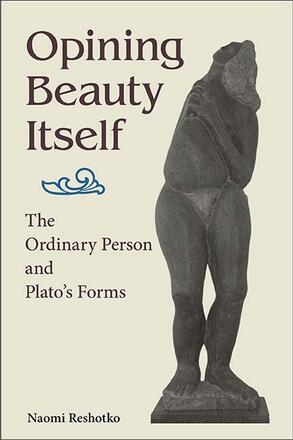
Opining Beauty Itself
The Ordinary Person and Plato's Forms
Alternative formats available from:
Argues that Plato thinks that ordinary people grapple with the Forms and can make epistemological progress, even if they never achieve knowledge.
Description
In Opining Beauty Itself, Naomi Reshotko examines Plato's discussions of epistemological states that fall short of knowledge. Wary that interpretations of Plato's epistemology often omit a detailed analysis of the way he deploys the epistemological concepts that are inferior to, but often prerequisites for, knowledge, Reshotko argues that we must understand these inferior prerequisite states, especially belief (doxa), before we can understand what Plato thought about knowledge. Examining how recollection provides what is required for inquiry, Reshotko argues that recollection does not afford doxa—let alone what contemporary philosophers call 'true belief.' Rather, recollection is responsible for an ability to refer that is a condition for every kind of doxa and for knowledge. Reshotko concludes that Plato regards doxa as the fabric of all the other epistemic states that fall short of knowledge, and develops a comprehensive view of Plato's deployment of doxa that can serve as a foundation for further interpretation of Plato's epistemology. In the process, Reshotko shows that, for Plato, ordinary people do opine the Forms and can make progress toward knowledge of them, even if that knowledge is never achieved.
Naomi Reshotko is Professor of Philosophy at the University of Denver. She is the author of Socratic Virtue: Making the Best of the Neither-Good-Nor-Bad.
Reviews
"…Reshotko's book is clearly written, persuasively argued, and a fine addition to mainstream Plato scholarship." — CHOICE
"Does Plato hold that some contact with the Forms is presupposed by all human thought, as his famous doctrine of recollection seems to entail? Or does he reserve such contact for the elite philosophers, as he seems to argue in the Republic? Reshotko’s book gives the first option a defense that is both compelling and provocative. Through lucid argument, careful readings of the dialogues, fruitful engagement with recent scholarship, and stimulating dialogue with modern theories of reference, she presents an exciting study of Plato’s epistemology that will change the way we think of his views of thought, belief, opinion, recollection, and knowledge." — Jessica Moss, New York University
"There has been a great deal of scholarship on what knowledge (epistēmē) means for Plato and how philosophers are supposed to achieve and apply it. Far less scholarship exists on Plato's view of non-philosophers and lesser cognitive states such as ignorance and belief (doxa). Opining Beauty Itself, fills this gap by offering a sustained discussion on belief and the cognitive condition of non-philosophers. One could reasonably believe that the very concept of a Form would be beyond a non-philosopher; however, Naomi Reshotko fashions a careful, novel, and fascinating argument that non-philosophers are (unwittingly) thinking about the Forms, and thus provides a more optimistic outlook for non-philosophers." — Nicholas Baima, Florida Atlantic University
"Reshotko's project helpfully broadens our focus of Plato's epistemology on features that fall short of knowledge including reference, inquiry, learning, belief, opinion, reasoned belief, true and false belief, and ignorance. In doing so, she focuses on some of the most fascinating and perplexing passages in the Platonic corpus concerning the paradox of inquiry, the theory of recollection, the nature of philosophers, the ascent in the Symposium, the possibility of false belief, and the famous images of the divided line and the cave. Anyone interested in these passages or their epistemological implications broadly construed will find Reshotko's provocative and wide-ranging book worth reading." — Hugh H. Benson, Emeritus Professor, University of Oklahoma
"The sustained investigation of doxa ('belief' or 'opinion') opens a new avenue for exploring Plato’s epistemology. Reshotko gives penetrating arguments for provocative conclusions, conclusions that give us original interpretations of Plato’s accounts of inquiry, recollection, and understanding. There is a wealth of helpful references both to other philosophical interpretations of Plato and to contemporary theories of reference." — George Rudebusch, Northern Arizona University